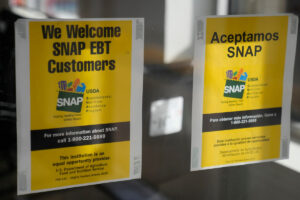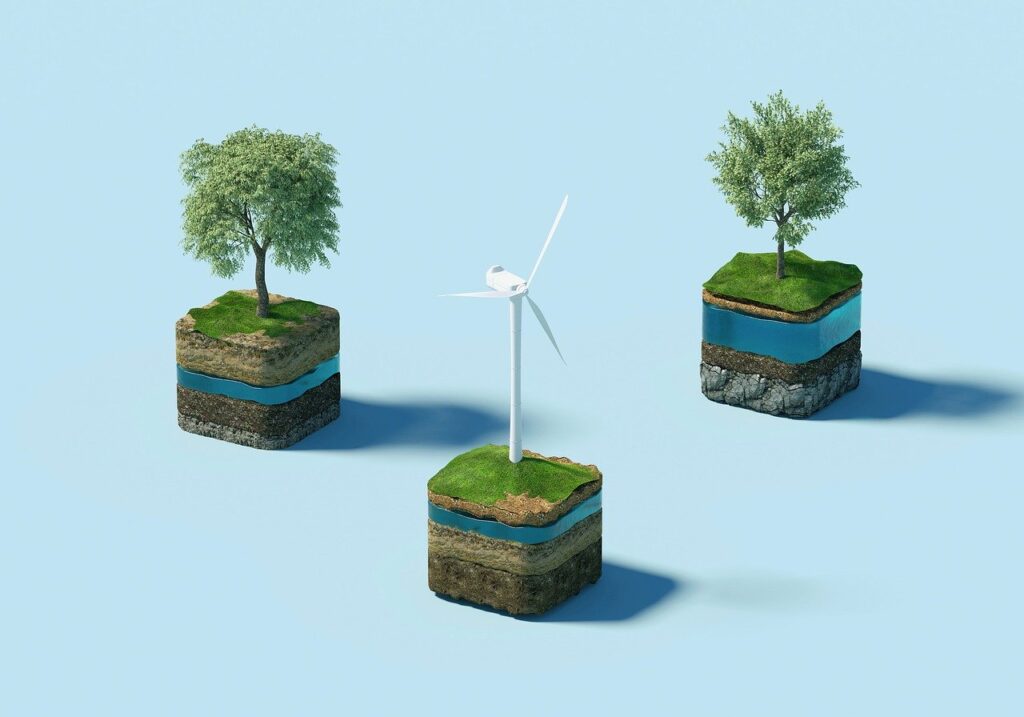The phrase “corporations are people, my friend”—once a cynical quip about unchecked corporate influence—has evolved into something much larger. Today, it reflects a stark truth: as corporations increasingly champion sustainability, diversity, and social impact, it’s our own government that’s now falling behind.
In 2025, as the U.S. faces yet another federal shutdown, this imbalance has never been clearer. Corporate responsibility—once viewed as voluntary goodwill—is now outpacing government accountability. And nowhere is that divide more visible than in the fight over the Supplemental Nutrition Assistance Program (SNAP), which is set to lose funding this Saturday if Congress fails to act.
At a moment when major corporations are pledging net-zero emissions, paying out disaster relief, and covering employee costs during shutdowns, the federal government is doing the opposite—pulling away support from millions of its most vulnerable citizens.
From Corporate Responsibility to Government Failure
In the last decade, companies across every sector—tech, retail, energy, and even fast food—have built corporate social responsibility (CSR) into their DNA. ESG (Environmental, Social, and Governance) standards now drive boardroom decisions. Brands brag about sustainability initiatives and community reinvestment.
Yet, in Washington, the same ideals are missing. Instead of modeling the responsibility corporations have been forced to adopt, the federal government is locked in a political stalemate that leaves essential workers unpaid and programs like SNAP—America’s last line of defense against hunger—hanging in the balance.
SNAP benefits will end this weekend if the shutdown continues. Millions of Americans who rely on the program—many of them children, seniors, and working families—will face uncertainty about how to put food on the table.
And here’s the bitter irony: while politicians debate “fiscal responsibility,” corporate America is already doing what the government won’t—stepping up to sustain people and planet alike.
Who Actually Uses SNAP? The Data Defies the Politics
One of the most persistent myths about SNAP is that it’s a partisan issue—something “Democrats use” or “Republicans abuse.” The truth is far more nuanced, and it exposes how disconnected the national conversation has become.
The federal government does not collect political affiliation data for SNAP recipients. There’s no partisan column on an EBT card. But based on geographic and demographic analyses, some patterns emerge:
- A 2013 Pew Research Center study found that 22% of Democrats and 10% of Republicans reported having received food stamps at some point.
- However, a 2024 Social Explorer analysis revealed that counties with higher SNAP usage overwhelmingly voted Republican—nearly 79% favored Donald Trump in 2020.
- SNAP recipients are diverse:
- Over 62% live in households with children.
- 37% include seniors or people with disabilities.
- And more than 38% are part of working families trying to stretch low wages into livable ones.
This means that the people most affected by the shutdown’s SNAP freeze aren’t blue or red—they’re American. They are rural and urban, young and old, conservative and liberal. And while politicians spar on cable news, families across both “red” and “blue” counties will be standing in grocery lines this weekend wondering if their EBT cards will still work.
A Government That Punishes Its Own People
The SNAP shutdown isn’t just a budgeting issue—it’s a moral one. It’s a test of whether the federal government can uphold even the most basic social contract: ensuring that no citizen goes hungry.
During this 2025 shutdown, NOAA scientists are flying into hurricanes without pay, TSA officers are keeping airports open without pay, and SNAP recipients—people already living paycheck to paycheck—are about to lose the only safety net between them and food insecurity.
If this were a corporation behaving this way—denying workers pay, cutting benefits, and walking away from public accountability—it would face boycotts, lawsuits, and public outrage. Yet when government does it, we call it “gridlock.”
As corporations move toward greater transparency, ethical sourcing, and human impact metrics, it’s the government that seems increasingly opaque, transactional, and disconnected from the public good.
Partisan Politics Over People
Congress is split not just on budgets, but on the philosophy of care itself.
Democrats have largely pushed for expanding and modernizing SNAP:
- Adopting the Low-Cost Food Plan to raise benefit amounts through the Closing the Meal Gap Act.
- Expanding eligibility by rolling back work restrictions.
- Guaranteeing SNAP funding during shutdowns.
- Restoring access for individuals with prior felony drug convictions.
Republicans, on the other hand, have focused on contractionary reforms:
- Expanding work requirements and narrowing waivers for high-unemployment areas.
- Proposing that states share the cost of benefit errors.
- Even attempting to restrict what foods can be purchased—targeting items like soft drinks and snacks.
There are glimmers of cooperation—bipartisan support for combating EBT fraud, improving online purchasing, and limited emergency funding—but they remain exceptions to a growing trend: policymaking by punishment.
When Senator Josh Hawley introduced a bill to keep SNAP funded during this shutdown, it was blocked by his own chamber. And with that, millions of Americans became hostages in a political power struggle disguised as fiscal prudence.
From Corporate Ethics to Civic Accountability
In the modern era, corporations are being held accountable not only to shareholders, but to people, communities, and ecosystems. The public expects it. Investors demand it. Employees fight for it.
So why isn’t the same true for government?
Corporate social responsibility has evolved into measurable frameworks: ESG audits, sustainability reports, community investments, and diversity goals. Imagine if government agencies had to release quarterly “impact reports” showing the human cost of their inaction—the number of meals lost, paychecks delayed, or families displaced by political stalemates.
Maybe then, “government responsibility” would mean something more than keeping the lights on.
The Next Phase of Responsibility
The 2025 government shutdown, coupled with the SNAP crisis, marks a turning point. Corporate responsibility has transcended business—it’s become a model for what functional, ethical governance should look like.
While corporations measure carbon footprints and human rights impacts, our elected officials are playing fiscal chicken with the dinner plates of American families.
If the private sector can evolve from profit-first to purpose-driven, then surely the government—whose only purpose is to serve the people—can do the same.
This is not a left or right issue. It’s not about corporate power versus public service. It’s about redefining what responsibility means in a world where both entities hold immense influence over human lives.
Because in 2025, the question isn’t whether corporations are people. The question is: when will the government start acting like it?
About the Author:
Don Lichterman writes the weekly “Corporations Are People, My Friend” column for Sustainable Action Now and Sunset, exploring the intersection of business ethics, political accountability, and social responsibility in modern America.
Learn more about how corporate and government actions shape our climate and communities at Sunset



